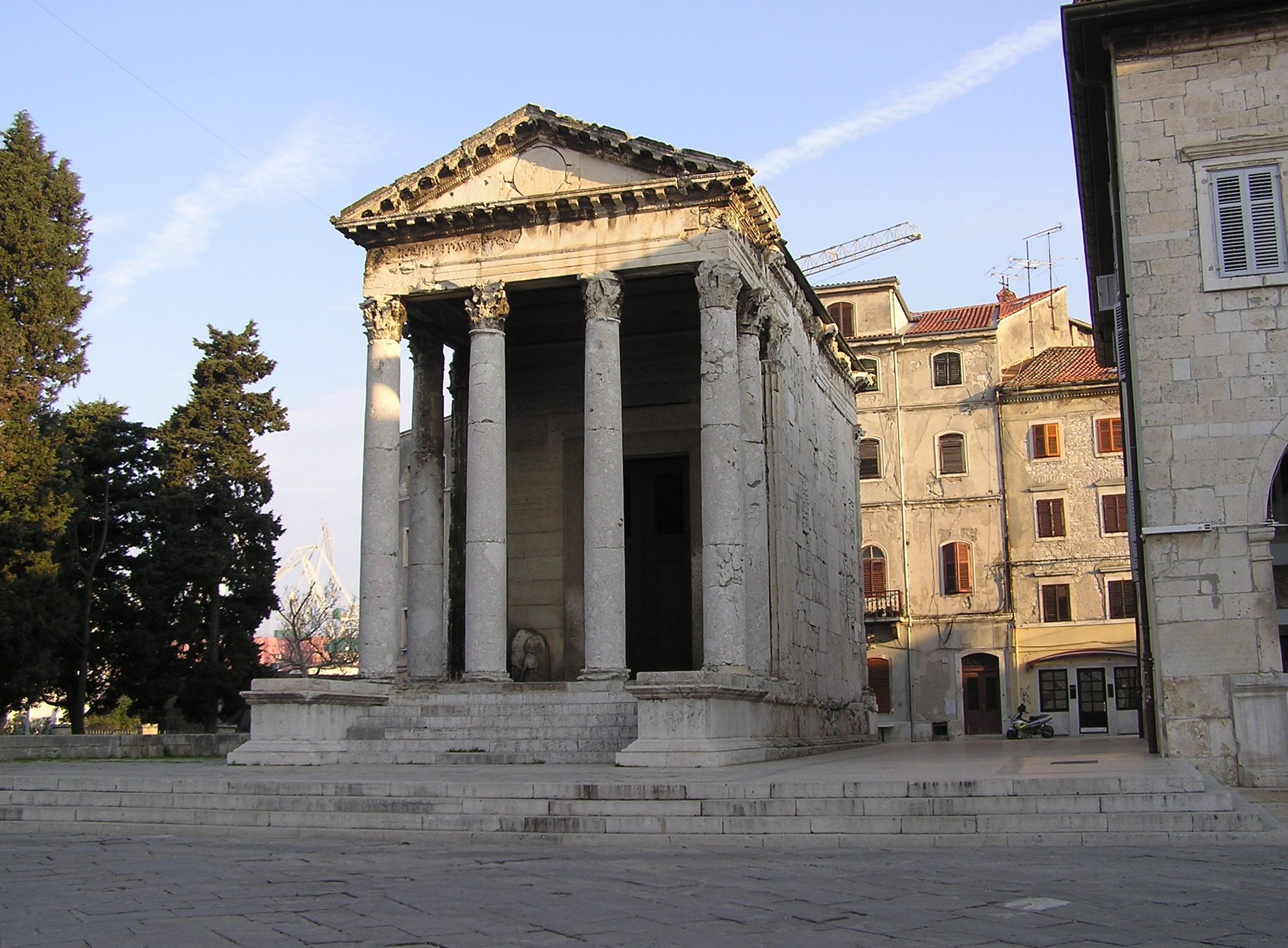- Temple of Augustus (Pula)
Ancient Roman monuments
name=Temple of Augustus
label_name=Pula
tekst1=
label_x=0.47
label_y=0.38
location=Pula ,Croatia
date=circa2 BC -AD14
builder=Augustus
type=Roman temple |The Temple of Augustus (Croatian: "Augustov hram") is a well-preserved
Roman temple in the city ofPula ,Croatia (known in Roman times as "Pola"). Dedicated to the firstRoman emperor ,Augustus , it was probably built during the emperor's lifetime at some point between 2 BC and his death in AD 14. [Radovan Radovinovic (ed.), "The Croatian Adriatic", pp. 48-49. Naklada Naprijed, 1999. ISBN 9531780978] It was built on apodium with atetrastyle prostyle porch of Corinthian columns and measures about 8 m (26 ft) by 17.3 m (57 ft). The richly decorated frieze is similar to that of a somewhat larger and older temple, theMaison Carrée inNîmes ,France . [Donald S. Robertson, "Greek and Roman Architecture", p. 214. Cambridge University Press, 1969. ISBN 0521094526]The temple's dedication originally consisted of bronze letters attached to the portico. Only the attachment holes now remain and much of the text has been destroyed over time. However, it consisted of a standard dedication also found on other Augustan temples, which read:
:ROMAE · ET · AUGUSTO · CAESARI · DIVI · F · PATRI · PATRIAE
:"Roma and Augustus Caesar, son of the deity, father of the fatherland"
This indicates that the temple was originally also co-dedicated to the goddess Roma, the personification of the city of
Rome . [Duncan Fishwick, "The Imperial Cult in the Latin West", p. 437. BRILL, 1990. ISBN 9004071059] Unlike later temples, such as theTemple of Divus Augustus inRome , the temple was not dedicated to "divus" (the deified) Augustus - a title only given to the emperor after his death. This, and the temple's architectural style, have allowed archaeologists to date the temple to the late Augustan period, prior to Augustus' death in AD 14. [Ittai Gradel, "Emperor Worship and Roman Religion", pp. 92-93. Oxford Classical Monographs, Clarendon Press, 2002. ISBN 0198152752]Under Byzantine rule, the temple was converted into a church, accounting for its survival to modern times, and was later used as a granary. It was struck by a bomb during an Allied air raid in 1944, almost totally destroying it, but was reconstructed in 1947. It is today used as a
lapidarium to display items of Roman sculpture. [Jane Foster, "Footprint Croatia", p. 106. Footprint Travel Guides, 2004. ISBN 1903471796] [Jeanne Oliver, "Croatia". Lonely Planet, 2005. ISBN 1740594878]References
ee also
*
Pula Arena
Wikimedia Foundation. 2010.
